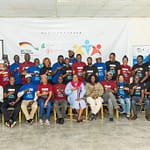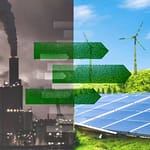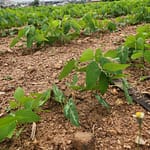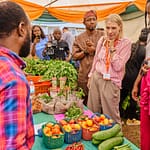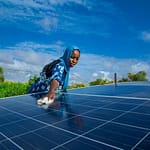The International Energy Agency (IEA), in partnership with the Clean Cooking Alliance, hosted the first ever global summit on “Clean Cooking in Africa,” convening close to 60 countries as well as companies and development institutions at the UNESCO Headquarters in Paris, France.
Co-chaired by the president of Tanzania, H.E. Dr. Samia Suluhu Hassan; the prime minister of Norway, H.E. Jonas Gahr Storè; the president of the African Development Bank Group, Dr. Akinwunmi A. Adeshina; and the executive director of the International Energy Agency, Dr. Fatih Birol.
In his opening statement, Dr. Fatih Birol highlighted that, according to the IEA’s data, the global issue of clean cooking is a problem more focused on Sub-Saharan Africa. With 4 out of 5 families in Africa using open fires today, more than 500 thousand people, mainly women and children, die prematurely due to respiratory diseases linked to the inhalation of toxic fumes caused by these cooking practices.

The IEA organized this event to mobilize financial commitments towards the estimated annual $4 billion needed to make clean cooking accessible to the more than 1 billion people in Africa who still lack clean cooking solutions and develop action-oriented strategies to accelerate progress on clean cooking.
And with the three co-chairs, several government and private sector representatives announced their financial commitments and signed the Clean Cooking Declaration, pledging to make the issue a priority and enhancing efforts toward achieving universal access for all.
In her remark, the President of Tanzania, H.E. Dr. Samia Suluhu Hassan, said: “Africa, the continent with the largest population growth rate and all necessary natural resources, ranks the least in access to clean cooking, and over 900 million Africans rely on unclean cooking solutions, a fact that contributes to environmental degradation, biodiversity loss, and health hazards.”

She stated that clean cooking in Africa has three dimensions: a lack of access to adequate, affordable, and sustainable solutions; a lack of global attention and insufficient funding; a lack of awareness about the economic opportunities in the clean cooking industry; and the absence of smart partnerships to ensure clean cooking access for all.
“Amidst these challenges, central to Tanzania’s own commitment is delivering on our recent 10-year clean cooking national strategy, which aims to ensure that 80% of Tanzanians use clean cooking solutions by the year 2034. A national fund will be established to support clean cooking, and the prime minister will provide high-level oversight of the implementation of the strategy. Further, given the disproportionate burden faced by women in Tanzania,she promised to continue to advocate for the African clean cooking support program, not only to address the environmental and health impacts but also to empower women as agents of change within their community.This Summit underscores our commitment to advancing this agenda and providing a framework towards universal adoption of clean cooking fuels and technologies across the continent.” She added
President of the African Development Bank Group, Dr. Adewumi A. Adeshina, said, “The IEA has estimated that it will cost only USD 4 billion per year in Africa to achieve universal access to clean cooking. African governments must play their leadership role, government must allocate at least 5% of the current USD 70 billion spent on energy investments annually for the provision of clean cooking solutions and that will provide the close to USD 4 billion needed annually to solve this problem. The African Development Bank will play a major role in this development. We will allocate 20% of all our financing for energy to clean cooking. I am therefore pleased to announce to you today that the African Development Bank will commit $2 billion to clean cooking over the next 10 years.”
Prime Minister Jonas Gahr Støre of Norway said, ”Improving access to clean cooking is about improving health outcomes, reducing emissions, and creating opportunities for economic growth. With this summit, we have mobilized much-needed support and built a diverse partnership that, together, can make a real difference. Norway is a steadfast supporter of clean cooking, and I am pleased to announce today that Norway is committed to investing approximately USD 50 million to support clean cooking.”
![H.E. Jonas Gahr Støre, Prime Minister of Norway. [Copyright/International Energy Agency]](https://mlmkoxknobqn.i.optimole.com/w:1024/h:683/q:mauto/ig:avif/https://lidanetwork.org/wp-content/uploads/2024/05/A9A2007.jpg)
IEA Executive Director Fatih Birol said, “This summit has delivered an emphatic commitment to an issue that has been ignored by too many people for too long. We still have a long way to go, but the outcome of this summit, with USD 2.2 billion committed, can help support fundamental rights such as health, gender equality, and education while also reducing emissions and restoring forests. And the commitments announced today go beyond the money alone; they set out concrete steps on how governments, institutions, and the private sector can work together to solve the clean cooking challenge this decade. I’m proud of the IEA’s decades of work on this issue and of its leadership in initiating this groundbreaking summit. Going forward, we will rigorously track the commitments announced today to make sure they’re met on time and in full, and we will continue to do our utmost to bring greater resources and attention to this critical issue.”
Also, in her speech at the summit, CEO and Special representative of UN secretary General for Sustainable Energy for all, and Co-chair UN Energy, Ms. Damola Ogunbiyi
While acknowledging the significant progress made in electrification by organizations like the African Development Bank and the World Bank, she noted the lack of similar advancements in clean cooking.
![Damilola Ogunbiyi, CEO and Special Representative of the UN Secretary-General, Co-Chair of UN Energy. [Copyright/International Energy Agency]](https://mlmkoxknobqn.i.optimole.com/w:1024/h:683/q:mauto/ig:avif/https://lidanetwork.org/wp-content/uploads/2024/05/A9A2400.jpg)
In her speech, Ms. Damola Ogunbiyi mentioned three key strategies for ensuring that clean cooking is really for all: policy and planning, financing, and innovative solutions.
Highlighting efforts to promote modern cooking transitions, Ms. Ogunbiyi discussed creating country-specific roadmaps to achieve universal access by 2030 and net zero by 2050. She noted the success of integrated energy plans in Malawi, Madagascar, and Rwanda, as well as Nigeria’s $750 million renewable energy scale-up program. However, she emphasized the need to prioritize clean cooking, regretting the previous focus on solar electrification alone.
She highlighted the severe underfunding in the clean cooking sector, with current investments at only 6% of what is needed for universal access by 2030. Ogunbiyi welcomed recent financial pledges and looked forward to collaborating with the International Energy Agency (IEA) to improve transparency and effectiveness in clean cooking programs.
She also discussed innovative solutions, including resource-based financing and the Universal Energy Facility’s pilot projects in Lagos. She announced the launch of the Global Electric Cooking Coalition (GECKO) at COP 28 and highlighted collaborations with the World Food Programme and UK Aid on large-scale e-cooking initiatives in schools, starting in Tanzania.
A report by the IEA stated that following the summit, the IEA will employ a “double-lock system” to ensure that momentum behind clean cooking does not slow down in the coming years. The agency will focus efforts on two areas: using effective tracking methods to ensure that pledges and commitments are fulfilled, making sure the money is spent in a timely manner and reaches those in need, and also continuing too play a convening role to engage more willing partners and generate new funds to help meet the USD 4 billion a year in capital investments required between now and 2030.
Reaching this level of funding would enable the world to deploy the stoves and fuel delivery infrastructure needed to reach universal access to clean cooking in sub-Saharan Africa.
